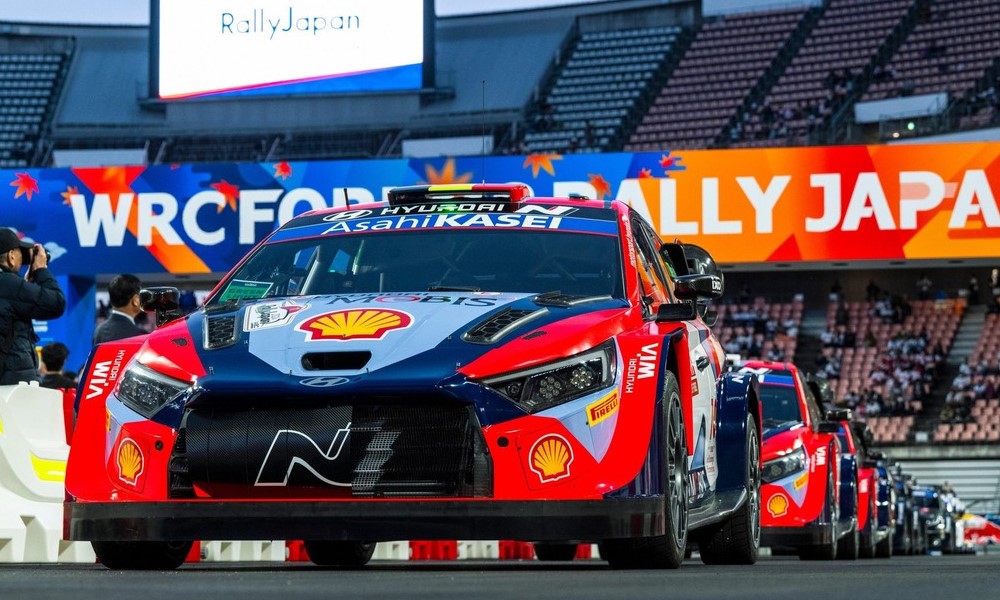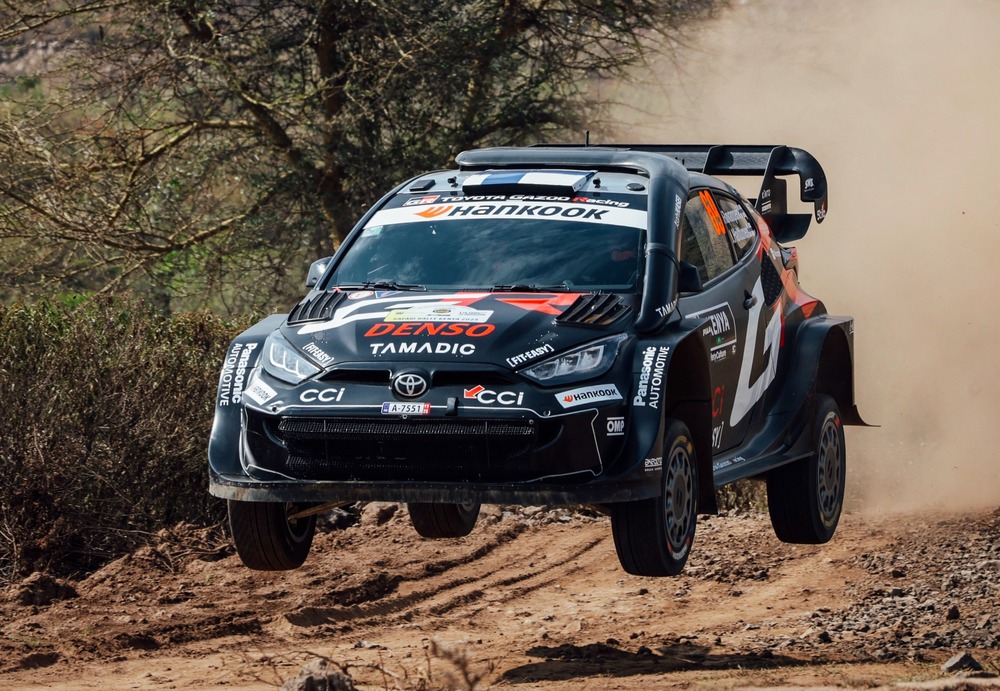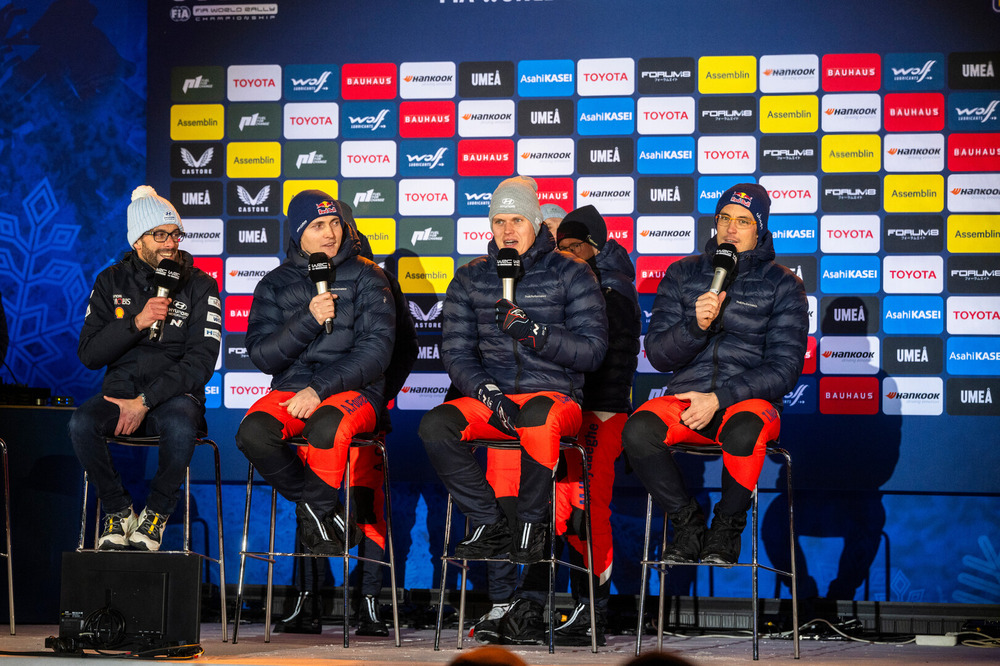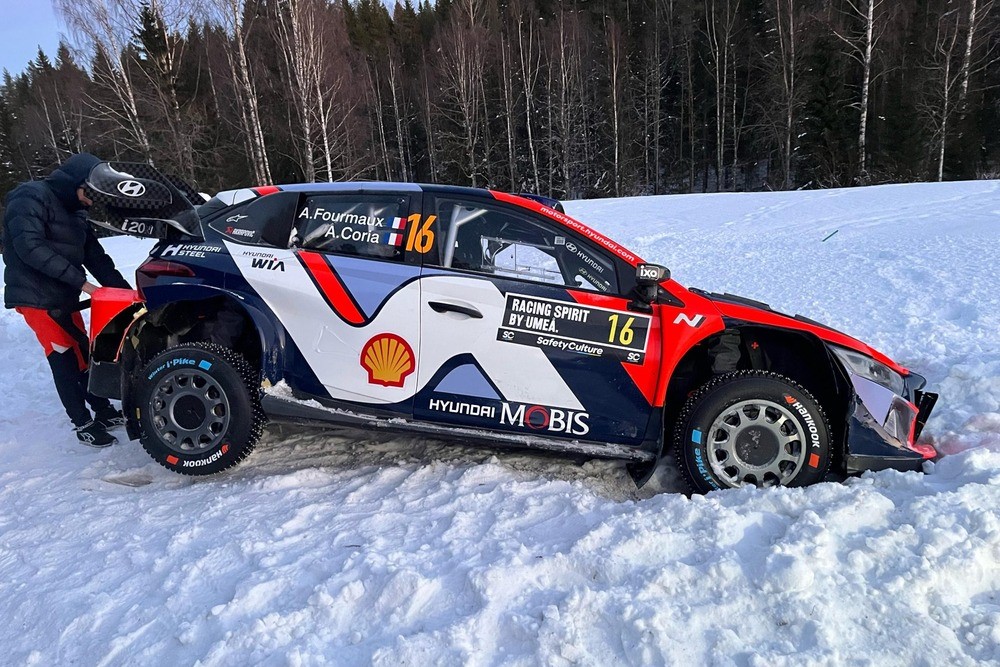Hyundai fined following a significant breach of homologation rules during the 2024 WRC season finale, Rally Japan.
The incident has resulted in a €25,000 fine imposed by the stewards, with an additional suspended fine of the same amount contingent upon the team’s compliance with homologation regulations before the upcoming Monte Carlo Rally in January 2025.
The controversy surrounding the Hyundai fine emerged after the conclusion of Rally Japan when the rear differential casing of WRC champion Thierry Neuville‘s i20 N Rally1 was found to be allegedly non-compliant with the homologation documentation.
This prompted the FIA technical delegate to investigate further, leading to a check of team-mate Andreas Mikkelsen’s vehicle which also failed to meet homologation rules.
The subsequent examination at FIA premises in Valleiry, France, revealed that while the CAD data and physical components from the original homologation were accurate, discrepancies existed with the parts submitted for homologation in 2024.
During a hearing held on December 10, 2024, Hyundai’s WRC program manager Christian Loriaux explained that the images included in the homologation form at Rally Japan were outdated and depicted a prototype case from 2021.
Hyundai Motorsport president Cyril Abiteboul expressed regret over this oversight and emphasized the need for improved internal processes to prevent similar issues in the future.
Abiteboul also pointed out that despite the errors in documentation, the physical components matched the CAD files, indicating that Hyundai acted in good faith.
Despite these explanations, Hyundai was found in violation of Article 10.3.3 of the 2024 FIA International Sporting Code, which mandates that all automobiles must comply with their respective homologation documents.
However, Hyundai fine did not include exclusion from the Rally Japan event due to the nature of their infractions being classified as clerical errors or mistakes within exceptional circumstances.
According to a statement sourced from Autosport the stewards determined: “During the hearing, Mr. Christian Loriaux explained that the picture in the homologation form was the one of the prototype case made in 2021. Due to their mistake, they had missed to ask for a correction of the photos enclosed in the homologation form.
“Mr. Abiteboul apologised for their lapse and stated that in Hyundai they need to improve their internal processes in order to avoid this type of mistake. He also added that the CAD file matches with the parts installed in their cars and this should be taken into consideration to underline that they have acted in good faith.
“After due deliberation, the Stewards concluded that it was indeed the responsibility of the Competitor to make sure that the part installed in their cars complied with the homologation form and vice-versa.
“However, it has to be taken into consideration that if the competitor wanted to change the external part of the rear differential casing, they were allowed to do so as per Art. 5 of the 2024 Homologation rules for cars in group Rally1.
“Therefore, this incident appears to be the consequence of an administrative/clerical error in not updating the homologation form accordingly and that this was caused by a lack of control in the internal processes of Hyundai, as stated by Mr. Abiteboul during the hearing.
“Accordingly with the jurisprudence in the past, the penalty for this type of infringement was disqualification. However, the International Court of Appeal has already deemed that in “exceptional circumstances”, the objective responsibility of a competitor for a case of non-compliance of its car can lead to a less severe sanction than disqualification.
“According to the jurisprudence, clerical errors or mistakes in the homologation documents can constitute ‘exceptional circumstances’. The Stewards concluded the Team was nevertheless in breach of the above-mentioned regulations and the Hyundai fine imposed is the appropriate penalty in this case.“
This incident is particularly significant as it raises questions about compliance and integrity within motorsport. The WRC operates under strict regulations designed to ensure fairness among competitors, and any deviations can lead to severe penalties.
The Hyundai fine serves as a reminder of the importance of meticulous adherence to technical regulations and proper documentation. As the team navigates this challenge, other teams within the WRC are likely reassessing their own compliance measures.
The repercussions of this ruling extend beyond just financial penalties; they also impact team morale and public perception. In a sport where reputation is paramount, maintaining trust with fans and sponsors is crucial.
Looking ahead, Hyundai’s performance at the Monte Carlo Rally will be closely watched as they aim to demonstrate their commitment to regulatory compliance while competing at a high level.
The team’s ability to rectify its homologation discrepancies will be vital not only for their competitive standing but also for restoring confidence among stakeholders.





